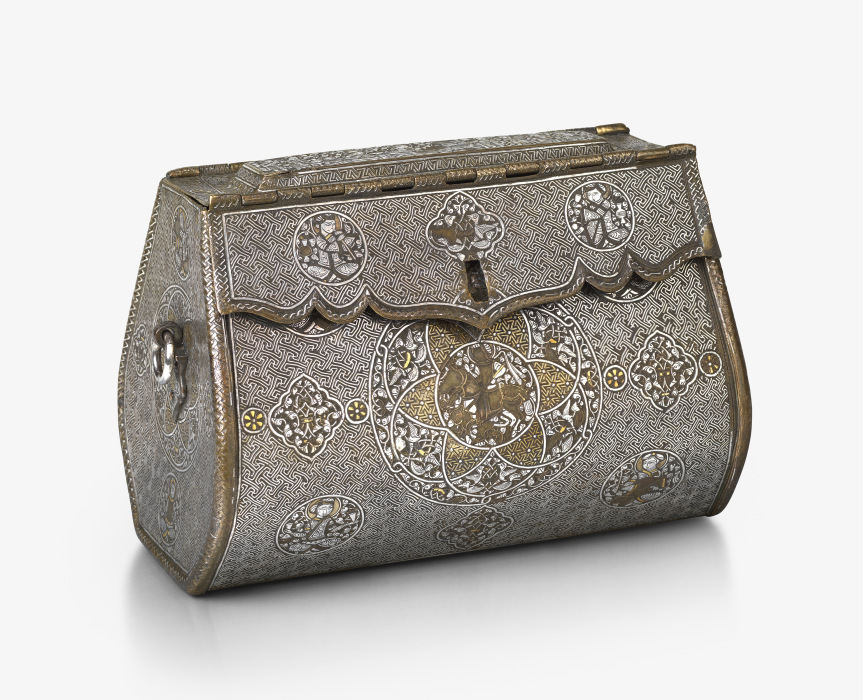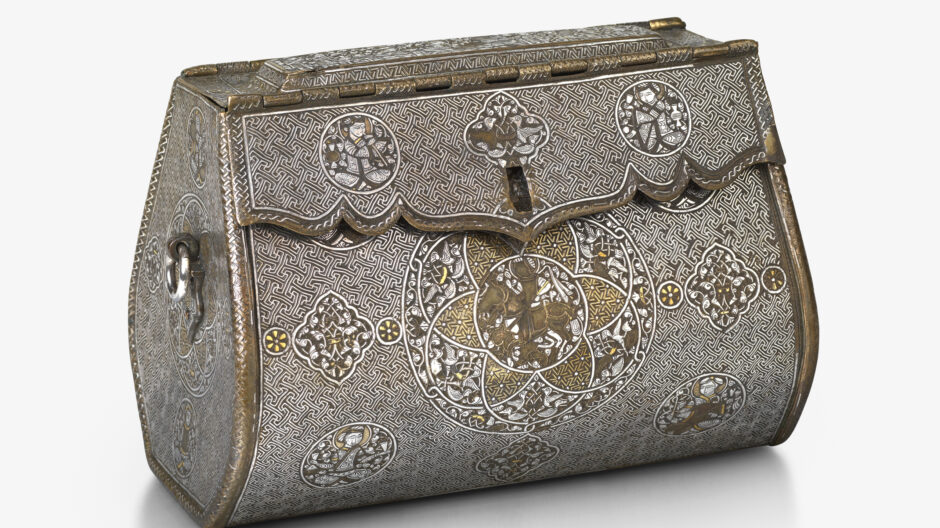This Call for Applications is now closed
We invite applications from early career (post-doctoral) and advanced doctoral levels for a three-year (2025-2027) travelling seminar project entitled Mongol Connections. Mongol Connections is made possible with support from Getty through its Connecting Art Histories initiative. We are seeking to develop a collaborative network of researchers and scholars in Art History and sister fields—anthropology, history, archaeology, among others—at different early career stages, to foster new connections between scholars across national and disciplinary boundaries, to stimulate and contribute to the burgeoning of a field in scholarship.
The Project
Mongol Connections approaches histories of the arts of the Mongol era (13-14th centuries) as intersecting, connecting, and competing histories of objects, artists, and technologies, across the Eurasian expanse of the Great Mongol State. The project aims to foster new connections between scholars beyond national and disciplinary boundaries, to stimulate a new field of scholarship which uses the Mongol case as a research tool for investigation into trans-Asian, and transnational perspectives on to the arts, and to surface new collaborative projects that can sustain beyond the lifetime of Mongol Connections.
Annual ten-day seminars will bring together the selected team of scholars, conservators, archaeologists, and cultural heritage professionals from Mongolia, East, West, South and Central Asia, as well as Europe and North America, with leading subject specialists. The traveling network will convene, for about 10 days, in Mongolia (August/September 2025), Uzbekistan (July/August 2026) and the United Kingdom (March 2027), with the final trip timed to coincide with the opening of the exhibition at the Royal Academy of Art, London, on the art of the Mongol world, and its accompanying conference.
This is a unique and exciting opportunity for members of the travelling seminar to create a network of researchers of all career stages from multiple localities along the Mongol routes. Visits will include archaeological sites and museums, and pre-assigned scholarly presentations on site, as well as meetings and colloquia at leading academic institutions along the way. The travelling seminar offers an important opportunity for ECR and doctoral candidates to generate new collaborative and interdisciplinary research and build their experience working with partners in and outside academia. Prior to the first trip and between each one, the group will convene remotely to share reports, blogs, discussions, expanded bibliographies, image albums, and other forms of research and reflection related to our joint studies and travels.
Travel details
The extraordinary opportunity to travel to Mongolia and Uzbekistan will offer unexpected discoveries but also will require readiness to meet potential challenges of travelling long distances and sometimes along unpaved roads. A long journey by vans or four-wheel drives capable of navigating rough roads will be required to traverse part of the Gobi Desert, for example. Sleeping in ger camps and sharing mealtimes are part of the joy but are also at times demanding of everyone’s good cheers. The journeys are as comfortable as we can arrange and as exciting and richly instructive for the group as can be organised. The cost of economy flights to and from each destination, standard, shared accommodations, transportation to-from airports in main arrival cities, and most meals are covered during the travel period. Single person accommodations will be extra! The London visit, in early 2027, will serve as a capstone to the travelling seminars coinciding with the exhibition at the Royal Academy of Art, the accompanying conference, a gathering at The Courtauld, and including visits to nearby museums and private collections.
Applying to join Mongol Connections
Participants are expected to be in the early career stage after receipt of their PhD or be at the doctoral level. They are also expected to be available to join all three annual trips (2025, 2026 and 2027) and to contribute remotely to online discussions and resources for the three-year duration of the project. The participants who decide to pull out of the seminars will need to inform the project leader and the project manager at least two months in advance as the fluctuating numbers of travellers change the costs borne by the tour companies that organise the trips and affect the Mongol Connections budget. By applying to the scheme, you also consent to the sharing of your information within reason with the Getty for the purposes of project planning.Application is by CV and covering letter that includes a statement of up to 1500 words outlining how your knowledge and experience will contribute to the aims of the Mongol Connections project and how participation aligns with your research and professional goals. All application materials should be sent in PDF format to mongolconnections@courtauld.ac.uk and Amanda.Leong@courtauld.ac.uk using the subject line: Mongol Connections Application. Incomplete applications will not be considered.
We will be having a short information session on 6th January 2025, 2 pm GMT where Professor Sussan Babaie, the lead on Mongol Connections, will introduce the traveling seminar and answer questions. Please email mongolconnections@courtauld.ac.uk for a zoom link to attend this information session.
Application materials:
Your CV + a covering letter that has your name, email, physical address, and your affiliation, if any. The letter is in effect a rationale for why you think you should be part of Mongol Connections project, how you can contribute to the development of this research network and how you envision participation in this travel seminar to impact your future research.
Deadline for receipt of applications is 13th January 2025, 5pm GMT.
Potential interviews for shortlisted candidates will be carried out between the 11th-21st February 2025. Recommendation letters from references will also be requested from shortlisted candidates.
Applicants will be advised of the outcome of their application by 24th February 2025.
For further information or an informal discussion about the project, please contact Professor Sussan Babaie: sussan.babaie@courtauld.ac.uk







